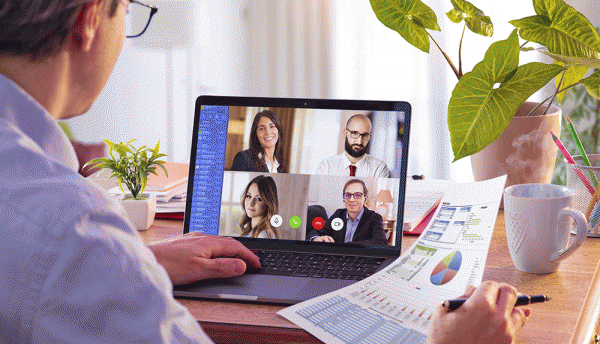Richard Fearon, CEO at PowerOptimal, explains what he thinks the major changes will be in the way companies work following the pandemic, and what will sustain the evolution of remote working for corporate and individual citizens alike.
Between 1998 and COVID-19 2020, the business universe at the behest of its leadership has begrudgingly paid lip service to the new world of work.
The reluctance of the past to support the transition to a world that no longer chains people to their desks, combined with longer daily commutes, generates an ever-growing carbon footprint. I believe this archaic, unsustainable phobia is fuelled by an inexplicable, almost desperate need to be in control of and to directly manage human capital through the prescription of location.
COVID-19 has changed the way people work forever, and it’s done it in a matter of weeks. The tipping point has been reached, where leadership is now forced to accept that it is no longer about how companies work but rather how people can or will be prepared to work with companies. Companies cannot function without the people they employ.
Governments are starting to legislate how airlines can operate sustainably within the new world. In the future, air travel will surely be more expensive and even discouraged by corporations.
Disease control, compliance and cost will reduce mass office and mass retail sustainability. Online work, play and commerce will take the high ground and VR will come of age, enabling remote work and play.
Crucial to this will be ubiquitous, fast, affordable connectivity for the masses that is both available and affordable, that allows a balance between individual and corporate risk in the PC (post-COVID) era. Further allowing for remote work and play. A migration to rural areas because of the flexibility afforded by ‘work from anywhere’ will accelerate, giving rise to FTTK (Fibre to the Karoo) enabling remote work and play once again.
The home has never been more important. The way in which homes are built and designed will be mixed-use, serving both the work and residential needs of the connected worker. People will strive to manage a balance between cost and sustainability, which will fuel the deployment of microgrids for their electricity needs, where costs can be funded in proportion to their work requirements and their own use.
Let’s not forget that the planet faces another pandemic, one for which there is no vaccine, and that is climate change. The benefits to the environment from lockdown cannot be refuted. If these are changes that we wish to keep and continue to leverage or harness, then let’s ban the commute.
Click below to share this article





